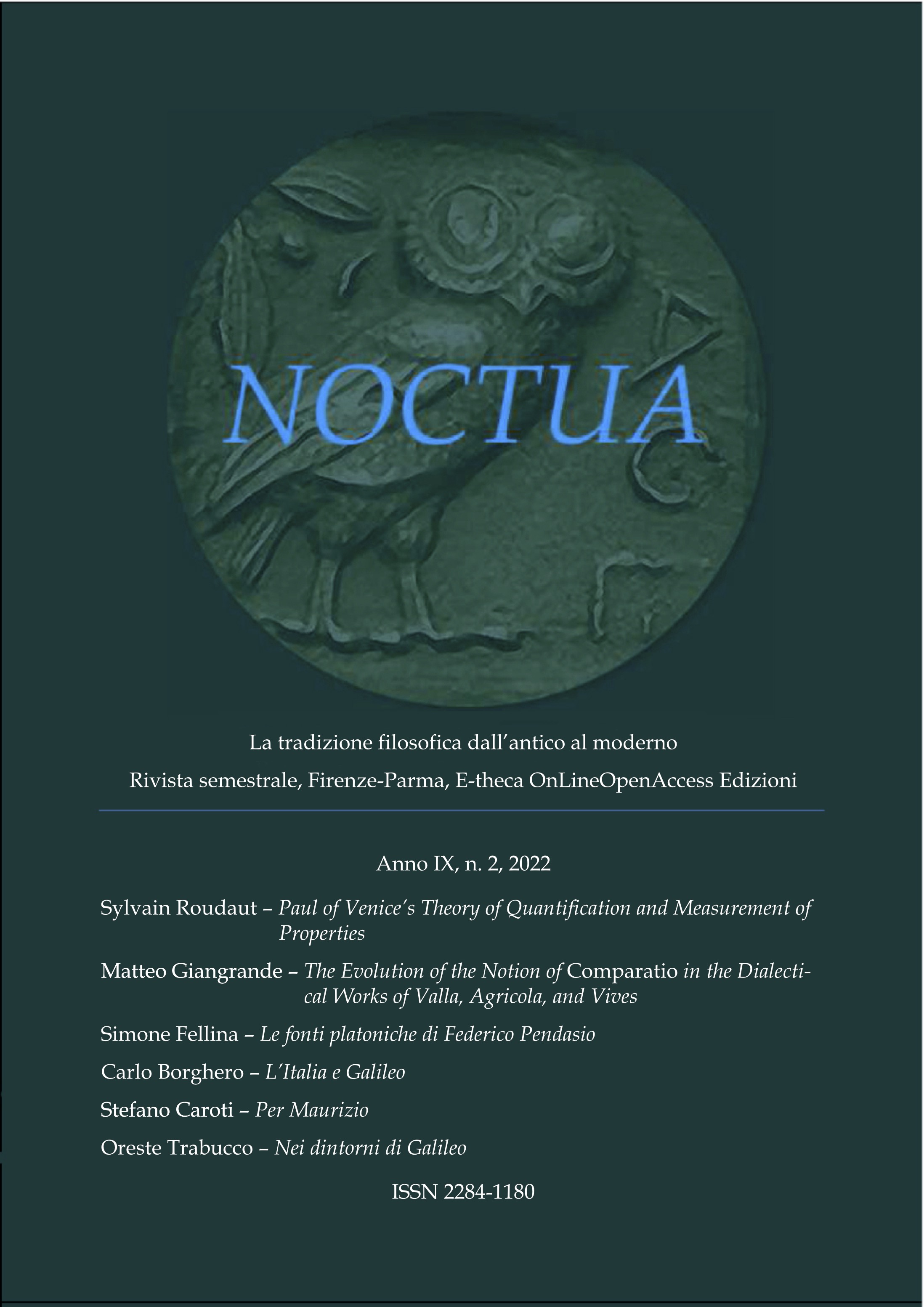Le fonti platoniche di Federico Pendasio: note sulla diffusione nel ’500 degli Scholia al Fedro di Ermia Alessandrino e dei Commenti al Fedone e al Filebo di Olimpiodoro e Damascio
DOI:
https://doi.org/10.14640/NoctuaIX7Parole chiave:
Federico Pendasio, Renaissance Platonism, university teaching, sixteenth-century philosophy, Olympiodorus, Damascius, Hermias of AlexandriaAbstract
Federico Pendasio was a highly esteemed professor at the universities of Padua (1564–1571) and Bologna (1571–1603). His contemporaries as well as modern scholars have recognized his commitment both to Aristotle and Plato. The aim of this paper is to provide a contribution to the study of the dissemination of Platonism in sixteenth-century university teaching by examining Pendasio’s Platonic sources, in particular Olympiodorus’s and Damascius’s commentaries on Plato’s Phaedo, Damascius’s commentary on the Philebus and Hermias Alexandrinus’s Scholia on the Phaedrus. These works are used in two of Pendasio’s most representative works: his De animae immortalitate (1570) and Lectiones dictatae in librum De anima (1577). In order to assess Pendasio’s interests in Platonism, a general survey of most of his university lectures and quaestiones will also be provided.
##submission.downloads##
Pubblicato
Fascicolo
Sezione
Licenza
Noctua pubblica contributi Diamond Open Access secondo i termini della licenza CC BY / Noctua publishes Diamond Open Access contributions under the terms of the CC BY license.







